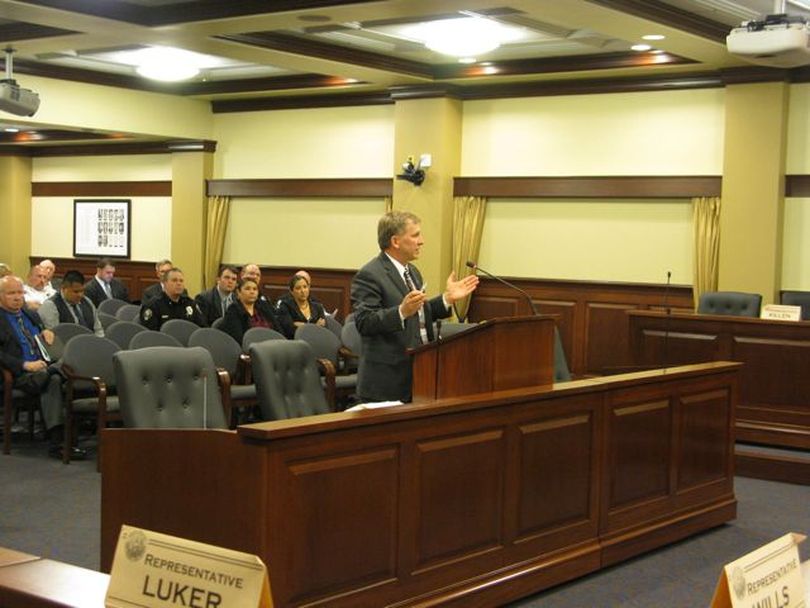Benewah prosecutor: ‘It takes away the power of local people to have a say’

Benewah County Prosecutor Douglas Payne is now testifying. He opened by saying he couldn't count all the objections he has to the bill. "This bill should not pass. ... It confuses the public," he said. "They get a ticket into tribal court and they say, 'What do I do with this, I'm not a tribal person.' ... Essentially what we're doing here is blurring that line that says that Indian tribe does not have criminal jurisdiction over a non-tribal person on the reservation. ... It upsets a balance of power which exists right now between tribal and county governments. ... At least we have some bargaining power, to say if you do that we will not deputize you. ... It has already aggravated race relations in a very negative way in my county. I'm not sure that aggravation is legitimate, it is already there, and I'd tell you that if this bill passes it is going to get worse."
He also said tribal police are "not an element of Idaho state government, they are ... paid by the federal government." Payne said, "Increasingly the federal government is telling states what to do in a way that we states find offensive." Payne held up a thick stack of paper he said was a petition against HB 500 signed by more than 1,300 county residents. "It takes away the power of local people to have a say in their government," he said of the bill, adding, "we are always ready" to sit down and try to work things out with the tribe.
Though Payne focused much of his concern on tribal police citing non-Indians into tribal court, the bill says in its Statement of Purpose, "All enforcement of state law by Tribal peace officers will be processed through Idaho state courts," and the text of the bill requires a tribal officer making an arrest to "comply with all duties imposed on peace officers by the laws of the state of Idaho relating to arrest and custody, and the entitlement to judicial proceedings, by or on behalf of the person arrested, in a state court of competent jurisdiction."
